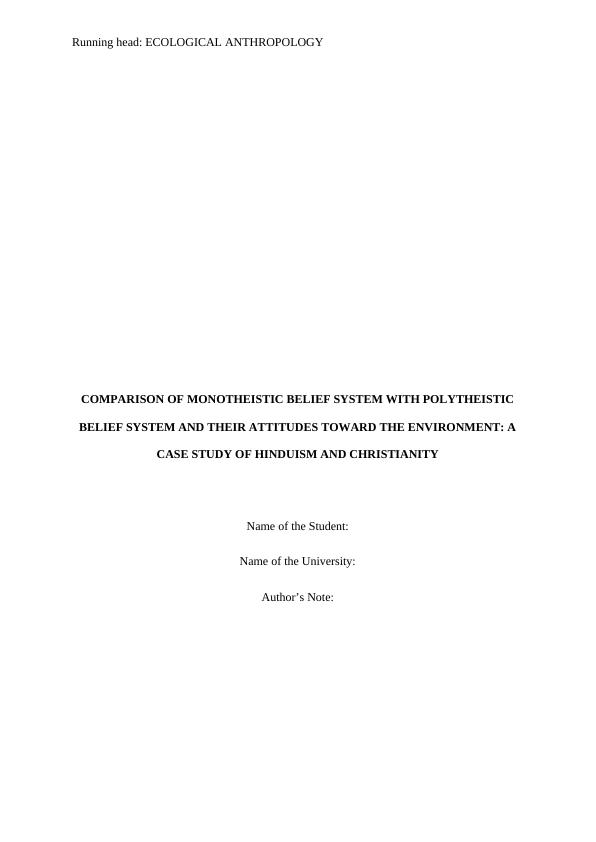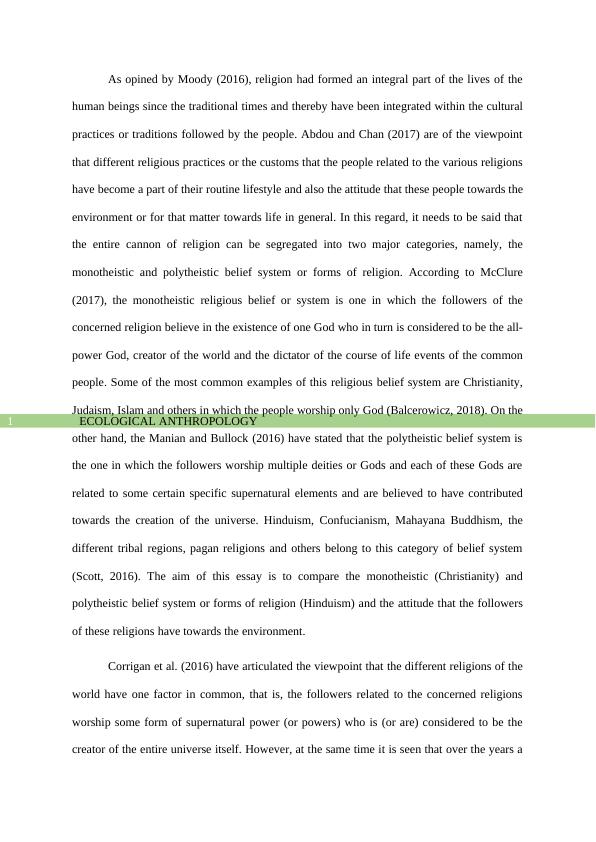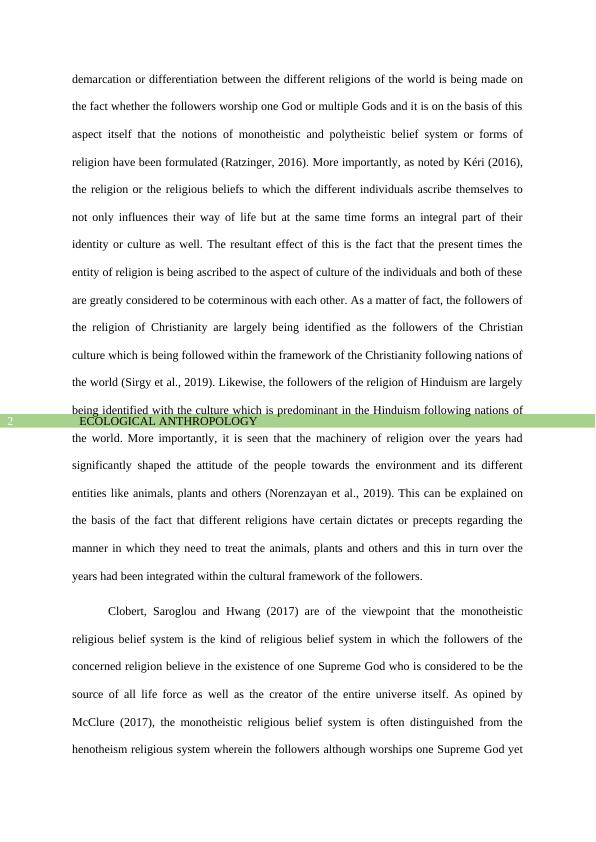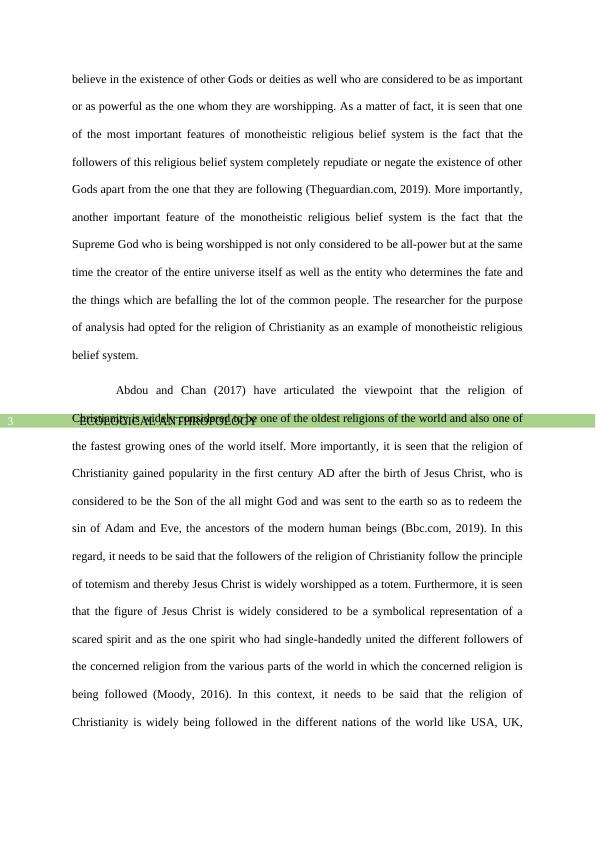Comparison of Monotheistic and Polytheistic Belief Systems and Their Attitudes Towards the Environment
Compare and contrast the attitudes toward the environment in one culture that follows a monotheistic belief system with one that follows a polytheistic belief system in the field of ecological anthropology.
11 Pages3633 Words215 Views
Added on 2022-12-16
About This Document
This essay compares the attitudes towards the environment of monotheistic (Christianity) and polytheistic (Hinduism) belief systems.
Comparison of Monotheistic and Polytheistic Belief Systems and Their Attitudes Towards the Environment
Compare and contrast the attitudes toward the environment in one culture that follows a monotheistic belief system with one that follows a polytheistic belief system in the field of ecological anthropology.
Added on 2022-12-16
ShareRelated Documents
End of preview
Want to access all the pages? Upload your documents or become a member.
Compare and Contrast the Five Religions
|5
|1171
|2
Personal Worldview Assignment - Desklib
|6
|1580
|872
Origins of Christian and Buddhist Faiths
|6
|1739
|2
Comparison between Christianity and Hinduism
|6
|1376
|362
HU105-014: What are the Various Religious Practices? Term Paper 2022
|5
|1387
|22
Religion in Ancient Egypt
|4
|686
|36




